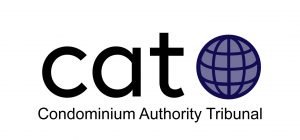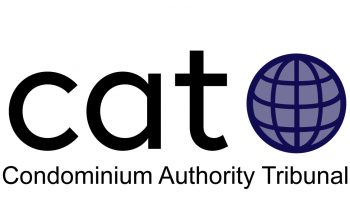 March 2020
March 2020
One of the responsibilities of the Condominium Authority of Ontario (CAO) is dispute resolution. The Condo Authority Tribunal (CAT), created for this purpose, is hailed by some as an improvement. Results to date suggest otherwise.
In Condo Authority Tribunal – What to Expect (November 2017) we noted that establishment of the tribunal may create “an increasing amount of business within law firms” with the cost to condo corporations being “thousands or tens of thousands of dollars for each dispute”. In How the Condominium Authority Tribunal Should Work (April 2019) we reported how few disputes were being heard by the tribunal when it “limited itself to accepting records-related complaints”.
Some lawyers believe a major problem is that CAT’s unwillingness to award legal costs creates an imbalance against condominium corporations and favouring frivolous claims. While this may be true, the problem may lie elsewhere.
 Representation in front of the tribunal is defaulting to legal counsel. Condominium managers are uncomfortable representing their employer at a tribunal. They lack time, are untrained in this area and lack sufficient understanding of how to proceed. Examining and cross-examining witnesses, and making legal submissions, are not part of their training or job description. Directors, unwilling to dedicate even more volunteer time to appear before the tribunal, have similar concerns. There is a concern that any non-lawyer representing a condominium corporation at the tribunal may be an unlawful providing of legal services. Regardless, representation of condominium corporations at the tribunal seems to involve lawyers.
Representation in front of the tribunal is defaulting to legal counsel. Condominium managers are uncomfortable representing their employer at a tribunal. They lack time, are untrained in this area and lack sufficient understanding of how to proceed. Examining and cross-examining witnesses, and making legal submissions, are not part of their training or job description. Directors, unwilling to dedicate even more volunteer time to appear before the tribunal, have similar concerns. There is a concern that any non-lawyer representing a condominium corporation at the tribunal may be an unlawful providing of legal services. Regardless, representation of condominium corporations at the tribunal seems to involve lawyers.
Legal costs escalate when non-lawyers on the other side of an issue present irrelevant arguments and materials that must be addressed by the corporation’s legal counsel.
Insurance costs may increase. Current Directors and Officers (D&O) liability insurance may not cover directors and managers acting as legal representation. If coverage is available it is likely at additional cost.
Some corporations are choosing not to participate in tribunals. They ignore any CAT Notice of Case sent to them when a unit owner commences a CAT Application against them. Financially this appears to be a good approach. The maximum financial penalty is $5,000 whereas legal representation can cost $15,000 or more. Even if the corporation is justified in their actions, and successful at the tribunal, they are unlikely to recover legal costs. Corporations are choosing to pay penalties rather than justify their proper actions.
Today, more than two years after CAT commenced operations, they fail to deal with a majority of complaints in condo communities while addressing only a handful of applications. They have managed to increase corporation costs resulting in higher condo fees.








